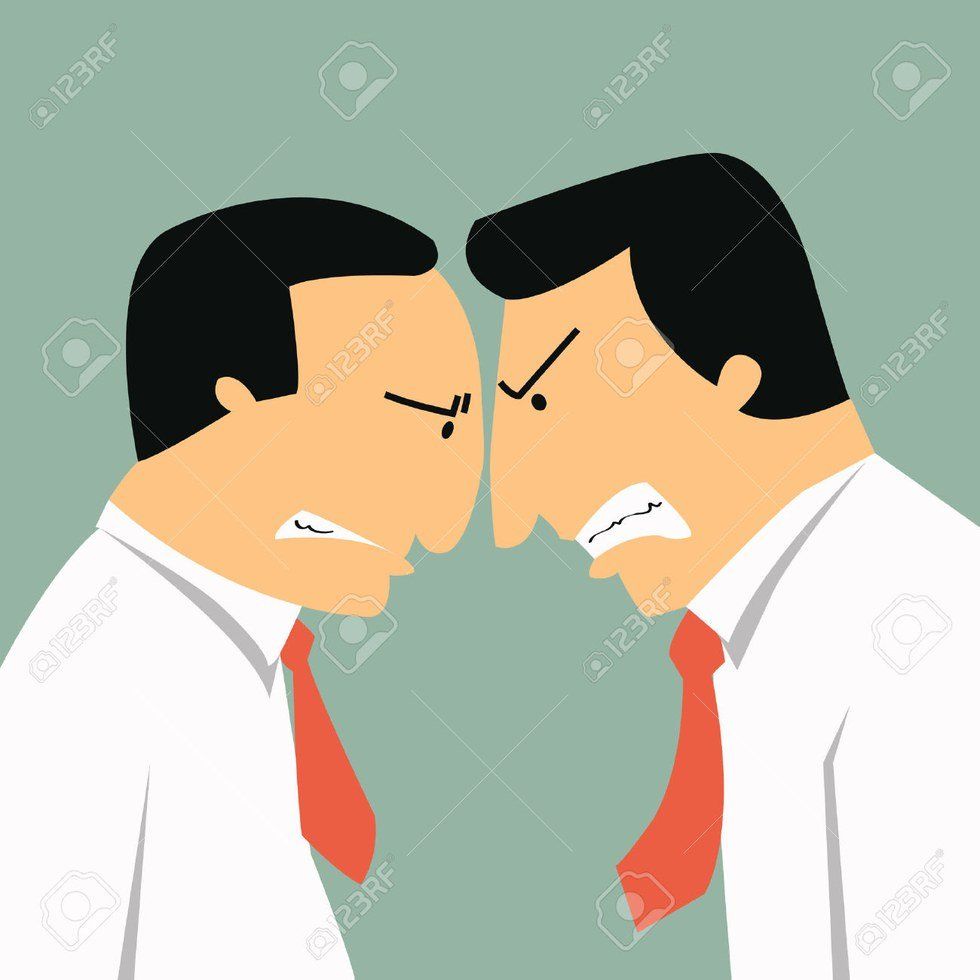It happens to all of us. Whether the perpetrator is a member of our family, a friend or a complete stranger, someone is bound to insult you some time in your life -- probably, although not hopefully, more than once. Although no one should ever insult someone else, passing insults is sometimes a comical activity carried out among friends, family members and, oddly enough, even two complete strangers.
In the moment, a common reaction after being insulted is to insult the person who insulted you. In every circumstance, this would not be the correct response to being insulted. In general, exchanging insults is not only an unprofessional form of communication, but also an exploitation of a sense of insecurity and fear.
Below, I would like to provide you with three personal tips on what to do in the event that you are insulted.
1. Smile
Depending on the circumstance, one of the main reasons someone insults someone else is because a person is trying to incite some degree of violent confrontation due to a prior scuffle with another person.
For example, let's say Bob and Anne are waiting in the lunch line for pizza. As Bob and Anne near closer to the pizza platters, Bob decides to cut the line and take the last slice of pizza. Understandably, Anne is upset. However, instead of shaking off Bob's irresponsible action, Anne becomes very upset and decides to "get Bob back" by calling him an idiot. In this example, Anne is insulting Bob due to a prior scuffle between both of them.
If I were Bob, I would smile. See, for some people who digress to projecting insults as a form of conflict resolution, there is reason to believe that that person is just trying to make another person's day go bad as well. By smiling, the person who projects the insult at you, in most cases, will feel embarrassed and lost since their hope for further retaliation from you would be quelled.
2. Ignore
This piece of advice may seem contradictory to the first piece of advice. However, in some circumstances, it is better to ignore the person insulting you rather than engage in any way with them -- even smiling at them.
For example, let's say Bob is known for bullying Anne frequently during school recess. For the past few recess periods, Bob has repeatedly called Anne "stupid," "ugly," and "fat." All of the times that Bob has insulted Anne, however, Anne cries. After witnessing Anne cry, Bob feels empowered and decides to continue insulting Anne every day during recess -- Bob feels superior.
In this example, Anne is unfortunately, and unintentionally, rewarding Bob for his behavior. By showcasing the negative emotional toll that being insulted takes on Anne, which is Bob's goal, Anne is unintentionally empowering Bob to continue insulting her -- Anne is showing her weakness.
If I were Anne, I would try my best not to cry, and ignore Bob's insults. By ignoring the person who insults you, it shows that the insult does not affect you in any perceivable negative way -- which is exactly the opposite of what the person insulting you wants you to react. Through ignoring, in some circumstances, you come out on top of the situation.
3. Converse
If you are finding it difficult to come up with a reason as to why I am suggesting that you begin a conversation with a person who has insulted you, you correctly understand my point -- so far.
While speaking with the person who insulted you may seem like a precursor for a violent confrontation, it can also be a way of showing your professionalism and maturity in the face of such immaturity and disrespect.
Let's bring back Bob and Anne into the picture. While sitting next to each other on the train home from work, Anne is talking on the phone with her friend Mary, while Bob lays back in his seat. After 15 minutes on the train, Bob becomes frustrated with Anne since her phone conversation is disrupting him from taking a much-needed nap. After five more minutes of inaction, Bob acts by calling Anne a fool and simultaneously slapping her phone out of her hand. After being insulted and witnessing her phone be violently slapped out of her hand, Anne turns to Bob, smiles, and asks Bob how his day at work went. Bewildered, Bob gets up from his seat and walks to the back of the train.
In this example, Anne took a risk. By starting a conversation with Bob, who had insulted her and damaged her phone, Anne was risking starting a confrontation. However, in this example, Anne's question to Bob made Bob's insult irrelevant -- making Bob feel insecure and powerless. Anne came out on top.
Please take these three pieces of advice with a grain of salt. Depending on the situation where insults are exchanged, and in what fashion they are exchanged, one or more of these pieces of advice may or may not apply.





















